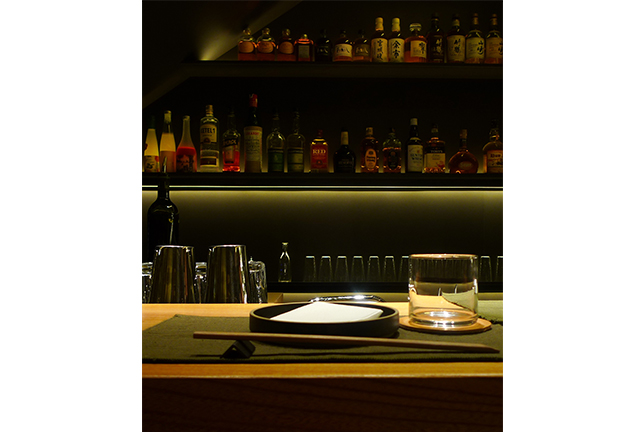
 In feudal Japan, samurai without masters were called RŌNIN. But that’s not where the name for Hong Kong’s new 14-seat izakaya from Matt Abergel and Lindsay Jang, the pair behind Yardbird, comes from.
In feudal Japan, samurai without masters were called RŌNIN. But that’s not where the name for Hong Kong’s new 14-seat izakaya from Matt Abergel and Lindsay Jang, the pair behind Yardbird, comes from.
“It’s our son’s name,” Abergel, says matter-of-factly.
Still, in a city where corporate restaurant groups dominate the dining landscape, the renegade warrior image seems to fit; these two owners have no overlords. They’ve learned from some of the best — Abergel spent his formative years at New York City’s Masa, and Jang worked the floor at Nobu 57 — and now they are their own masters.
But the neat metaphor ends there. According to tradition, a samurai was supposed to commit suicide after the death of his master. And while it could be argued that opening a restaurant in Hong Kong — or anywhere — is a particular form of hara-kiri, Abergel and Jang are not only surviving, they are thriving. Yardbird, their modern yakitori in Sheung Wan, is a wild success, regarded as much for its surprising plays with poultry as for its well-informed service. And now they’re expanding.
RŌNIN also means “wave man,” and seafood will figure heavily on the small-plates menu. Abergel, who started cooking Japanese food at 19 and never looked back, plans to use local ingredients whenever possible, but his motivation is as much about creativity as environmental ethics. “There’s some really amazing fish coming out of the South China Sea, really beautiful things. Chefs don’t use it here,” he says.
“We want to try to challenge people a little bit,” he says, and “our service being as good as it is, we can sell these things.” So instead of the usual tuna or salmon, you’ll find Those things might include sardines with pickled tomato; geoduck clams with shichimi vinaigrette; cuttlefish with red shiso and ume sauce; or sayori with kimchi vinegar. The menu will change constantly.
Of course, it wouldn’t be an izakaya (a Japanese-style tapas bar) without sake, and there will be plenty, along with shochu and an impressive selection of Japanese whiskies, including some rarities from now-defunct distilleries. Hitachino Nest White Ale will be on tap.
Located on a stair-step street in Central, the space is long and narrow, and dark like a den. Seating is along the wooden counter; there are no tables. The slate-gray walls are lined with black-and-white street photography. The chrome-framed fridge on the rear wall looks like the drinks cooler at the world’s hippest convenience store. There’s no sign on the windowless façade.
If you’re lost, look for the line. Like Yardbird, RŌNIN won’t be taking reservations, which likely means that there will be a wait. This policy, while occasionally frustrating for diners, allows small restaurants to keep their seats perpetually filled, a necessity in a high-rent city like Hong Kong.
But Abergel thinks it’s conducive to a more spontaneous experience, too. “I don’t want it to be [just for] special events. I don’t want you to come just for your birthday,” he says. “Obviously, we do have people that like to celebrate with us, but I want that to become a gradual thing. I want the celebration to be because they’ve spent so many other nights with us, and they know they’re going to have a good time.”
“Come early, come often,” is one of their mottos, and if their previous success is any indication, people will do both.
Courtesy of Barbra Austin
